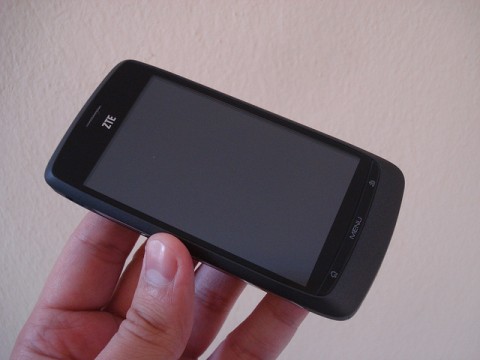U.S. Military will no longer be able to Purchase ZTE and Huawei Phones on Military bases
U.S. Military will no longer be able to Purchase ZTE and Huawei Phones on Military Bases
 |
| ZTE Phone |
U.S. service individuals will never again have the capacity to buy ZTE and Huawei telephones on army installations, as indicated by another Defense Department order that refers to security dangers postured by the gadgets.
"Huawei and ZTE gadgets may represent an unsuitable hazard to Department's faculty, data and mission," Pentagon representative Major Dave Eastburn said in an announcement. "In light of this data, it was not reasonable for the Department's trades to keep pitching them to DoD work force."
The Pentagon declined to give the specialized points of interest of potential dangers.
The request to stop the offer of Huawei and ZTE telephones and expel them from the military trades was given last Friday, the Pentagon said. Versatile Internet modems and different remote items are likewise incorporated into the boycott. The request was accounted for before by Stars and Stripes and the Wall Street Journal Wednesday.
The request doesn't keep benefit individuals from utilizing the gadgets out and out or from conveying them to work. Be that as it may, the Pentagon said that, "Administration individuals ought to be aware of the security dangers postured by the utilization of Huawei gadgets, paying little heed to where they were bought."
The choice is the most recent move by the Trump organization to restrain the impact of Chinese remote hardware producers, originating from fears that a more overwhelming Chinese tech nearness could make it less demanding for Beijing to hack or keep an eye on American organizations and military work force.
ZTE and Huawei did not instantly react to demands for input.
The boycott takes after an exceptionally surprising move prior this year, when President Trump requested Singapore-based Broadcom to relinquish its $117 billion unfriendly offer for Qualcomm, blocking what might have been one of the biggest innovation bargains ever. Trump referred to "believable proof" in his presidential request that the takeover undermined "to impede the national security of the United States."
The Federal Communications Commission has likewise found a way to forbid government reserves from being spent on remote hardware made by organizations that represent a national security risk to U.S. correspondence systems. Both ZTE and Huawei were said in the FCC's proposition in a segment itemizing the government's worries with outside tech suppliers.
"Huawei and ZTE gadgets may represent an unsuitable hazard to Department's faculty, data and mission," Pentagon representative Major Dave Eastburn said in an announcement. "In light of this data, it was not reasonable for the Department's trades to keep pitching them to DoD work force."
The Pentagon declined to give the specialized points of interest of potential dangers.
The request to stop the offer of Huawei and ZTE telephones and expel them from the military trades was given last Friday, the Pentagon said. Versatile Internet modems and different remote items are likewise incorporated into the boycott. The request was accounted for before by Stars and Stripes and the Wall Street Journal Wednesday.
The request doesn't keep benefit individuals from utilizing the gadgets out and out or from conveying them to work. Be that as it may, the Pentagon said that, "Administration individuals ought to be aware of the security dangers postured by the utilization of Huawei gadgets, paying little heed to where they were bought."
The choice is the most recent move by the Trump organization to restrain the impact of Chinese remote hardware producers, originating from fears that a more overwhelming Chinese tech nearness could make it less demanding for Beijing to hack or keep an eye on American organizations and military work force.
ZTE and Huawei did not instantly react to demands for input.
The boycott takes after an exceptionally surprising move prior this year, when President Trump requested Singapore-based Broadcom to relinquish its $117 billion unfriendly offer for Qualcomm, blocking what might have been one of the biggest innovation bargains ever. Trump referred to "believable proof" in his presidential request that the takeover undermined "to impede the national security of the United States."
The Federal Communications Commission has likewise found a way to forbid government reserves from being spent on remote hardware made by organizations that represent a national security risk to U.S. correspondence systems. Both ZTE and Huawei were said in the FCC's proposition in a segment itemizing the government's worries with outside tech suppliers.
For more updates, tech news, gadget news, tips, and tricks, subscribe Advanced Gadget World




No comments:
Post a Comment